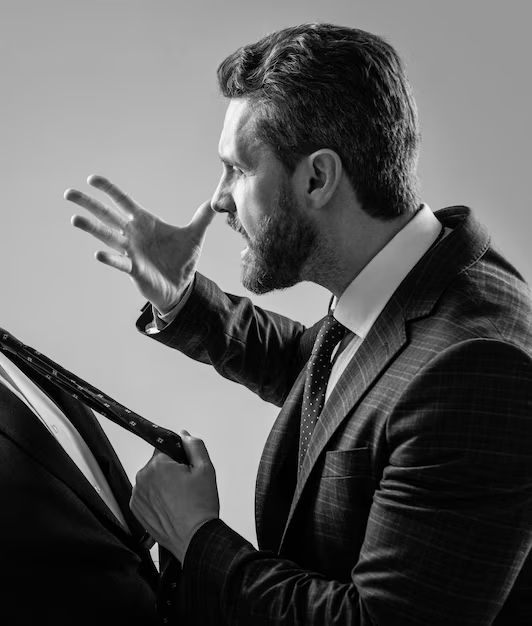
The courtrooms of fiction and reality are very different from one another. Legal dramas are replete with morally virtuous attorneys who are prepared to use their principles to exact justice. Shouts of “Objection!” mix with biting repartee until the decision is rendered and the “good guys” triumphantly leave in front of an ecstatic group of media.
While it’s entertaining to watch Cousin Vinny undermine witness testimony by cleverly probing about magic grits or Elle Woods show perjury based on fashion, actual legal labor demands perseverance, ethics, and respect for the court.
Although most judges don’t enjoy the drama, certain clients might. The same holds true for combative writing. These documents are thrilling and enjoyable to create, but they can have negative effects and don’t always win cases.
It is your duty as a lawyer to give your client the finest counsel and representation you can. You must operate on their behalf with reasonable attention and in a competent, honest, and professional manner as required by ABA Model Rule 1.3. A call to represent clients “zealously within the bounds of the law,” as mentioned in Canon 7 and Ethical Consideration 7-1, is purposefully downgraded to “reasonable diligence.”
Zealous representation isn’t necessarily moral, though. Although having passion for your client is a good thing in theory, ardent attorneys don’t always make cool decisions and communicate calmly. Nonetheless, careful and thoughtful diligence suggests that you should put up a lot of effort in pursuing your case without going outside of your personal or professional bounds.
Clients Believe They Desire Aggressive Attorneys
Apart from what they see in popular culture, most clients have little actual understanding of how the legal system operates. They believe that in order to have justice served, they must have a strong, irate guy who is prepared to verbally abuse opposing counsel. Thus, they search for attorneys who take sledgehammer selfies on billboards. They like their gavels banged, harsh scowls, and severe remarks.
However, attorneys are aware that meticulous investigation and writing make up 95% of the legal procedure. Examining past instances may not be a fun way to watch TV, but it is the method used to win cases. Posturing is not required by the law; substance is. Even with this awareness of the standards, though, it is still easy to incorporate forceful flourishes into your writing due to customer pressure and that pesky little voice in your head that calls for flare and pizzazz.
The issue is that court disputes are not won by combative writing or outward manifestations of righteous rage. You don’t look like a superhero defending the rights of the people by using theatricals and allegations. They’re more likely to paint you as an irrational, crazed person without any supporting evidence.
Using harsh or combative language will aggravate the other attorney and, worse, alienate the court. It is not a good idea to offend the person who is in charge of your client’s destiny because judges are human too. When one lawyer treats the other with contempt while the other acts in a professional manner, it’s difficult to remain neutral. If you’re both acting like irate tweens and using an insult thesaurus, it’s even worse. No judge is patient or has the time for that.
The opposing attorneys and your judge are not simpletons. No matter how many syllables an insult has, they can still recognize it when they hear it. Phonological esotericism does neither absolve slights or elevate accusations. Here are some strategies for taming your righteous fury into language suitable for court:
- Seek out evasive language
Approaches, is almost, borders on, and verges on. These expressions indicate that you are going to say something harsh, accusing, or excessive, and that you desire an escape route in case you are confronted for it. Consider this to be the attorney equivalent of “I’m not racist, but —.” employing evasive language to indicate that you know better than to say what you’re going to say. Make these remarks more direct and measured in your revisions.
- Read your work out loud
Do you hear any instances where the pitch or speed of your tone varies noticeably? This could mean that you included a highly charged term. Examine the sentence to determine whether the modification was necessary to maintain the document’s natural flow or if it has to be rewritten to eliminate any harsh language.

The facts are what matter in law: what occurred, what did not, and what prior cases exist to bolster a certain ruling. You have to evaluate the evidence you have and formulate a case that proves beyond a reasonable doubt that your client is correct. Keep attacks and insults out of any correspondence with the court or opposing counsel, since they will cast doubt on your well-supported case.
It goes without saying that you ought to represent your client in court with vigor. Take a bold and proactive stance in your case, yet speak in a formal tone. Rather than representing clients in an emotionally charged, reactive manner, a successful lawyer symbolizes the strength of precise, planned action.
Though popular culture may lead one to believe otherwise, legal practice is more complex than that. Your client may believe they want you to represent them in court like a fervent professional wrestler. You are a legal expert dedicated to protecting the rights of your clients and following the law, so you are aware of this.
Winning lawsuits requires a well-thought-out, professional strategy. Leave the strong language and exaggerated charges to the Hollywood screenwriters. The courtroom is not the right location for them.

